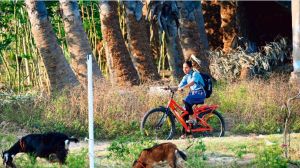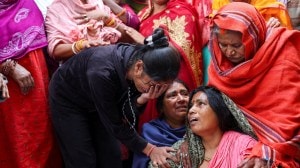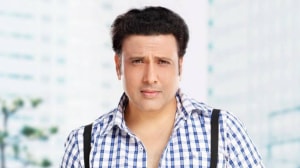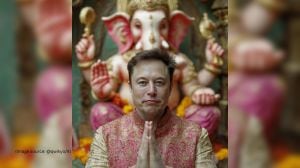Wider still and weaker?
Britains empire,in the sense of overseas territories under United Kingdom sovereignty,has shrunk and...
Britains empire,in the sense of overseas territories under United Kingdom sovereignty,has shrunk and shrunk: it now consists of just 14 islands,rocks and barely inhabited strips of land,the biggest of them in Antarctica. Meanwhile,the body that emerged from the empire 60 years ago,the Commonwealth,risks the opposite: growing so large,loose and floppy that it merges with the rest of humanity.
Its 53 countries already represent a fifth of earths land area and nearly a third of the human race; their leaders,or most of them,were due to converge in Trinidad on November 27thwith many of their staff staying on two cruise ships,looming over Port of Spains waterfront. Just over half the Commonwealths 2 billion people are Indian; but awkwardly,a poll of seven Commonwealth countries,including India,found that only a third of respondents could name something the body did.
In several ways,this will be a bigger summit than ever. It will be joined by Ban Ki-moon,the UN secretary-general; and also,for a day,Frances president,Nicolas Sarkozy,as well as Denmarks prime minister. All see the meeting as a useful precursor to the Copenhagen deliberation on climate change. The states present in Trinidad range from flat,vulnerable islands to powerful carbon-belching economies.
And in yet another fading of an already faint contour,the Trinidad summit is expected to admit Rwanda,the first member with a colonial culture (inherited from Belgium) that is more Francophone than Anglophone. The old restriction to ex-British territories was broken in 1995,when ex-Portuguese Mozambique gained entry.
Welcoming a French-speaking African state to the Commonwealth is a much bigger landmark. Anglo-French rivalry has overshadowed the continent until very recent times. (For example,Rwandas genocide and civil strife might have met a firmer response if the French- and English-speaking worlds had put up a united front,instead of seeming to compete by proxy.) But once the Anglo-French divide is transcended,the question of what defines the Commonwealth becomes still harder.
To concentrate minds,leaders arriving in the Caribbean will be presented with two reports,both of which are remarkably blunt,considering that one was funded in part by the Commonwealths small Secretariat,and the other came from the Royal Commonwealth Society,the largest of the NGOs that promote the club.
Both reports suggest that the group must acquire more bite,as a promoter of democracy and human rights,or else it might as well shut up. Not that the Commonwealth is entirely toothless. It has a patchy record of suspending or forcing the withdrawal of members that grossly violate its ideals of electoral democracy and racial equality. And there is a mild incentive for virtue: the joyous welcome afforded to countries that gain readmission after a period of isolation (as happened to South Africa after apartheid or Pakistan when democracy returned).
At the moment,the clubs disciplinary organ is the Ministerial Action Group,known as CMAG,consisting of senior people from a rotating group of nine members. Just now,only one errant country is in its sights: Fiji,which was suspended in September after failing to return to democracy. But both reports say the Commonwealths machinery needs strengthening. Instead of reacting to coups détat,the group should examine all its members to monitor the quality of democracy,as gauged by free expression,the absence of corruption and the separation of powers.
One report,Democracy in the Commonwealth,reflects the passion of people who can tell good democratic systems from bad. One of its authors is Asma Jahangir,a Pakistani human-rights campaigner who has faced death threats,and in 2007,house arrest. The report is presented by Amartya Sen,a Nobel laureate who wants the Commonwealth to stand for something subtler than ballots and voting booths. It should urge reasoned debate and governance by discussion in domestic and global affairs,as preached by the philosopher John Stuart Mill.
As Mr Sen sees it,many of the Commonwealths Asian members are poised somewhere between authoritarianism and ideal democracy. Despite its internal woes,Pakistan has fine independent newspapers. Bangladesh has emerged in a promising way from the challenges of militarism and Islamism. And Malaysia has bravely adversarial politics,not just at election time but in cyberspace. A properly functioning Commonwealth,with India playing an active role,could help to keep many countries on the right track.
But the authors are blunt about the failings of some notional democracies. They quote a Ugandan judge as saying that in most African countries,the legislature has,through intimidation,bribery and incompetence,been rendered impotent.
If that study is scathing about democracy in the Commonwealth,the other one,Common What?,is pretty frank about the club itself. Drawing on polls,focus groups and web chats involving tens of thousands of people,it found that the Commonwealth was more popular among poorer states than richer ones,but misunderstood everywhere. Only about a third of Australians or Canadians would be sorry or appalled if their country quit the club,though two-thirds of Indians and Malaysians would feel that way.
The Commonwealths dwindling fan club,it notes provocatively,includes Anglophiles,monarchists and beneficiaries of its scholarships and professional networks; to have any hope of survival,it must expand this constituency by abandoning secretive culture and becoming more open to NGOs and the young.
Some NGOs are not waiting. Well before the bigwigs arrived,they were setting up shop in a Peoples Forum linked to the summit. One,called AIDS-Free World,called the anti-homosexuality law now before Ugandas parliament a moment of truth for a body whose last summit (in Kampala) had spoken in lofty terms about the need to respect diversity.



- 01
- 02
- 03
- 04
- 05




























